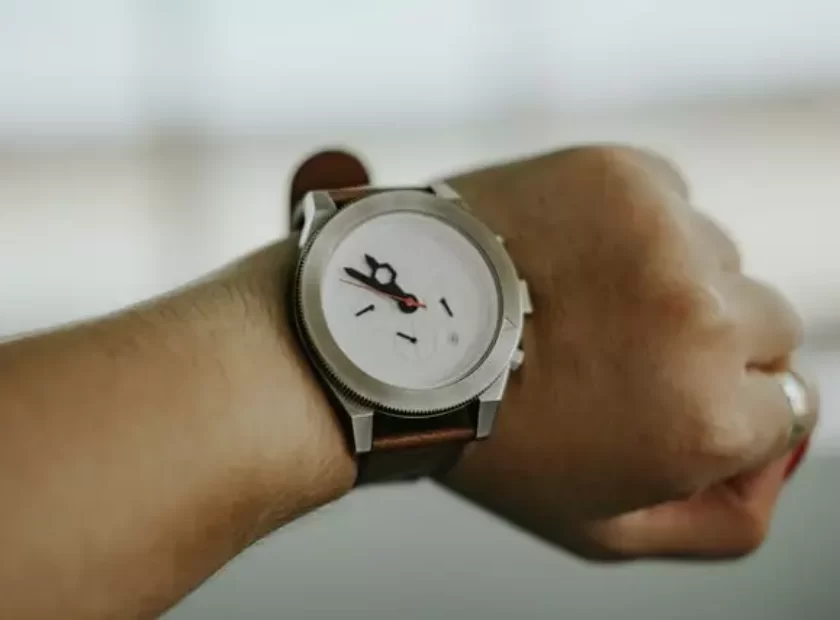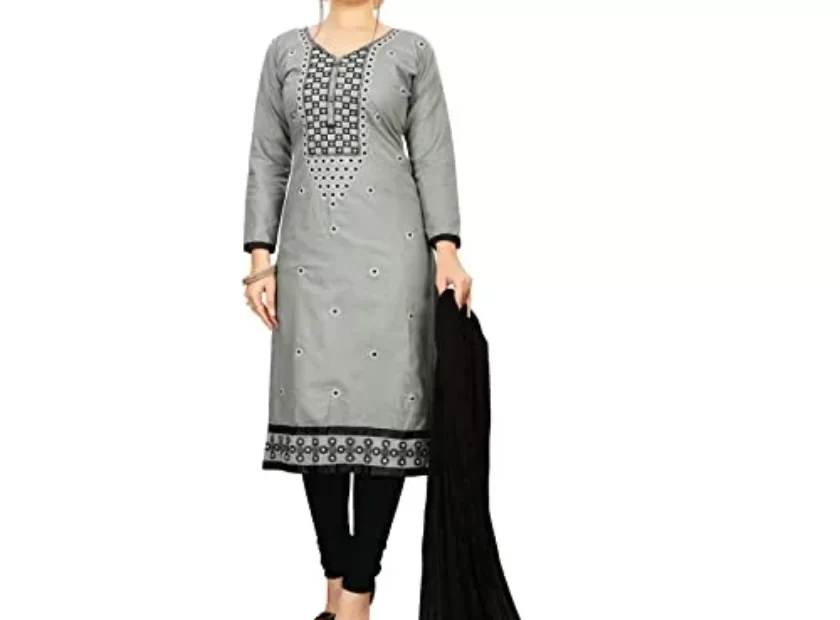
15 Secrets The Opticians Don’t Want You To Know
People say you should keep a secret if you don’t want others to find out. But what if the secret doesn’t matter? If you wear glasses or contact lenses, then it is likely that you have undergone a series of tests with an optician. These practitioners make sure that your eyesight meets the standard required for driving, flying an aircraft, etc.
They don’t want you to know some things, though, because they don’t want the hassle of handling any lawsuits that may arise if you find their ‘secrets.’ It’s time to learn what those hidden truths are. Here are fifteen Opticians Secrets that they don’t want us to know:
1. Opticians Can Tell If You Are Farsighted, But They Can’t Fix It
You should never need to ask an optician to ‘just give me a check-up and make sure my eyes are okay.’ Many people believe that they can get rid of any problems with their eyes with glasses or contact lenses.
Opticians have several limitations in their scope of practice. They have examined what the ophthalmologist has said about your vision, but that only tells them how far away your eyes are from perfect.
They can’t correct by using glasses or contacts. If your eyes are nearsighted, then glasses will amplify the problem, and distance vision must be considered. If your eyes are farsighted, then contact lenses will fix the problem. But you may never achieve the perfect vision!
2. Opticians Can’t Tell How Old Your Lenses Are
You probably know that when lenses were first introduced to the public, they were often considered a symbol of rebellion or fashion.
These days, we don’t hesitate to go for orthodontic braces when we’re young and beautiful. Now that glasses and contact lenses are common, it seems like people don’t even think about the fact that these are artificial structures.
Also Read: 11 tips to save 299 INR and more on eyewear—no matter where you buy eyeglasses.
3. Opticians Can’t Tell If You Need New Lenses
The conditioning of your eyes depends on what you expose them to. But how can you tell that your lenses no longer work properly? It’s easy to fall into this trap when you start wearing glasses because they effectively improve vision.
The problem is when you have to go through a lot of effort to see things clearly with your eyes and glasses.
4. Opticians Don’t Have A Lot Of Time To Spend With You
Some people think that opticians are paid fairly well, mainly because they use their own eyes to examine you. But opticians aren’t doctors, and they don’t have enough training to check everything that your eyes may be doing.
They want you to understand that they can only give a cursory examination, and usually, you’ll still end up going to an ophthalmologist.
5. Opticians Don’t Offer Rebates
When you purchase retail-priced glasses at an optician, there is little room for negotiation – preferably none at all. But you can use all the tricks in the book to get a better deal.
Many people hear that you can get a significant discount if you visit Walmart or Costco, but these are usually websites that sell contact lenses.
The optician doesn’t know how many contacts you currently wear and doesn’t know whether you’re within their regular program. This is also why opticians don’t offer free single-eye or two-eye contact lens fittings.
Also Read: Top 7 Best Blue-Light Glasses in 2022
6. Opticians Don’t Think Glasses Should Be Worn All The Time
It’s common to hear pretty much everyone saying that glasses should be worn all the time and even visiting an optician at some point to get new specs. Still, there are some things you can only see with the naked eye, some of which have to do with safety.
Eyesight indeed becomes worse as time passes, and it’s human nature to want to correct that problem as best you can. The opticians want you to know that they’re not your pet dog or a pet cat.
7. Opticians Don’t Like It When Your Lenses Are Dirty
Dirt interferes with any new technology, especially if it automatically moves around or uses a spring. The same thing goes for your eyes and the lenses in them: dirt hinders the natural accommodation process and makes it more difficult for the pupil to react accordingly.
8. Opticians Don’t Know When You’re Wearing Contact Lenses
It is very easy to forget that contacts are artificial structures. Opticians want you to know that they don’t want any unnecessary problems. If you happen to buy contact lenses online or at a store, they’re not going to be as knowledgeable about the whole process.
There’s no doubt that good-quality contacts are essential, but there’s also the risk of losing them or a lens breaking and causing eye damage.
Also Read: Top 5 Best eyeglasses online 2022
9. Opticians Don’t Care About Your Prescription For Glasses
Many people complain about their glasses once in a while, and opticians are annoyed with them if they come infrequently. Some opticians seem to be irritated when they see glasses.
There is a standard convention that allows you to ask for a new prescription if you feel the current one isn’t good enough. In reality, the opticians are annoyed because they can’t practice their trade properly when people say they hate glasses or don’t like them.
10. Opticians Don’t Have The Answers To All Your Questions
Have you ever noticed that opticians are not experts? They can provide information, but they don’t feel that they have to know everything about every subject. Also, if you’re too inquisitive or ask too many questions, there is a high risk of being shown the door.
This is true for many people who struggle with self-consciousness about wearing glasses and a variety of people who are just curious.
11. Opticians Don’t Want You To Wear Glasses All The Time
There are certain things that an optician doesn’t care about, details like whether you want to wear glasses all the time or how many were ordered for a single patient. Of course, the answer depends on the individual; maybe you’re a fussy person, and opticians can’t stand it.
Also Read: Top 9 Lenskart Eyeglasses 2022
12. Opticians Don’t Repair Glasses
There are moments in life when you need to repair your glasses because you broke them or wore them too much. But opticians don’t do that, and they consider the process an unnecessary risk, even though many people think it’s normal and useful to have an extra pair in case of an accident or loss.
Opticians sell replacement parts for their frames to their credit so that customers can get minor repairs done. Unfortunately, most of these are made in China, and many people aren’t happy with them.
13. Opticians Don’t Care About The Size Of Your Head
There are many things that opticians need to know about their patients, and one of them is how big their heads are. Of course, the answer to this question may vary depending on your glasses and face size. If you have a big head or opticians decide you have a big head without any frame options, they will automatically assume you’re a small person. They won’t even ask if you have any special requirements to add insult to injury.
14. Opticians Don’t Have Time To Train You
Opticians are professional and trained in the field. But they don’t have time to teach you all about their job, and there is no reason that an optician should have to explain why your glasses will be more expensive if you take them home with you immediately.
15. Opticians Don’t Have Time To Deal With Indecisive People
The sales process at an optician’s office is pretty typical, and it usually begins by getting a list of your specifications so that they can match them to some frames.
You’ll probably start by choosing a frame, but it’s also entirely possible that you’ll want to try on other options or choose frames based on their colour and style.
This may lead to more questions, even when you don’t have any. This is especially true if you’re unsure what you want and the optician doesn’t have time.
16. Opticians Don’t Want You To Wear Your Glasses Everywhere
Some people indeed like to wear their glasses everywhere, but it’s also true that they don’t want them to help them see around the place.
If you’re one of those people, opticians don’t want you wearing your glasses all the time. But if you’re the kind of person who feels self-conscious about wearing contacts or something else, opticians will usually give you a few days to fit you for a different pair.
Also Read: Top 8 Best Bluezero Computer Glasses starting Under 2000 INR
17. Opticians Don’t Know What Problems You Have
Opticians learn how to help with specific issues related to eye issues and Eyeglasses, but there are other things that they won’t be aware of. They can help you with certain types of lenses and frames, but there are some things that they don’t know about.
18. Opticians Don’t Want To Be Responsible For Your Glasses
Glasses are slightly different from contact lenses, but sometimes it’s still possible to open a case against an optician.
If this happens, a customer needs to prove that the product was defective somehow, which can present particular challenges. Still, it’s something that opticians need to worry about when they’re working with their customers.
19. Opticians Don’t Have Time To Deal With Your Problems
There are many things that opticians are responsible for, but they don’t have time to listen to people who want advice on their personal lives.
They may make time if you need help, but your need will remain a priority when compared with other customer needs. In reality, opticians are slaves of the system and some customers make them feel like it.
Eyeglass Buying Guide
This Eyeglass buying guide will help you find the best frames and lenses for your face shape, lifestyle, and budget.
1. The Basics
The first step is to figure out which features you need. This can vary from person to person, but it’s typically a good idea to start with the basics.
Do you need bifocals or progressive lenses? If so, how much magnification do you require for reading? Will your glasses be designed for computer use? Do you want a pair of glasses worn with prescription contacts?
2. Fit & Feel
Next, take into account comfort and fit issues. If you need your glasses to be worn over your contacts, finding a pair that fits your face more naturally will be easier.
Also, if you’re looking for more technologically advanced glasses, make sure you think about how they feel on your face. Many pairs incorporate personal technology such as video cameras and motion sensors, so look for something with a sleeker design.
3. Style & Color
Next, decide what type of style or colour suits you best. Will you be wearing your glasses out in public or the office? Will you want a pair that will complement your existing casual clothing, or are you planning on wearing them to special occasions?
4. Screen Resolution
Another factor to consider is how well your glasses can display information. If you plan on using your glasses to read e-books and text messages, it’s more important that they can display fine print.
Likewise, if you plan on using them for web surfing and video chatting, a higher resolution is needed. This can be an essential quality of eyewear, so think about your needs before purchasing.
5. Accessorizing
If you’re looking for a designer eyeglass frame, think about how you can accessorize it. Many designer frames come with other items such as cases, cleaning cloths, or Eyeglasses so that you can use one pair of glasses for multiple purposes.
It’s also essential to think about how the glasses are packaged and what comes with them. Do you want a spare pair of lenses? A few extra pairs of nose pads? Trays for keeping all your eyewear organized? Many designs come with all these accessories and more, so make sure to pick a design that suits your needs.
6. About the Model
When designing eyewear, the Internet is filled with countless eyeglasses models created by major brands or have celebrity endorsements. However, not all of these models are realistic, and not every model can accommodate an individual’s unique face shape or personal style.
Therefore, it’s vital to take some time to become acquainted with different designs in person before making any purchase decisions.
7. The Look
Once you’ve decided on an eyeglass model, take some time to look at it in person. Some models have a sleeker design while others are more classic, so play around with a few different pairs to see which one looks most appealing.
Once you’ve narrowed down your options to three or four, it’s time to think about how you want them packaged. Some models may come with designer cases, while others will be packed in a plain box. If you plan on wearing your glasses to special events, it’s essential to pick a model that can be worn multiple times.
8. Lens Options and Anti-Reflective Coating
Once you’ve decided how you want your lenses to look, it’s time to think about what lens coating is best for your needs. Most lenses are treated with an anti-reflective coating that prevents the light from bouncing off of them and interfering with the vision of those around you. While it’s a standard feature, this coating can vary in quality.
The most advanced lenses will have an anti-reflective coating that blocks up to 100% of the visible light, while others are designed to block only 50%. Another option is a special coating that enhances contrast in low lighting.
Also Read: Titan Eyeplus: Affordable Eyeglass for everyone in India
9. The Frame Quality
In addition to lens options and coatings, you should also consider the frame material used to create your eyeglasses. Many designer models come with accessories such as cases, but they’re typically made from high-quality materials such as genuine leather or real wood.
Other models are more affordable, but some may be made from plastic or other synthetic material. If you’re looking to buy a designer frame, think about how the frame and accessories will look once worn over time.
10. The Price
Finally, take into account the cost of your eyeglasses. If you need a pair for everyday use, you may want to purchase something less expensive and designed for everyday wear.
On the other hand, if you’re looking for designer glasses to wear on special occasions, it may be worth investing in high-end designer frames that will last for years.
Conclusion
In conclusion, you should know that some Opticians Secrets are just secrets because of the laws, not intentions. Some may have other reasons to hide them, but it is up to you to find out what they are.
Hopefully, this article has helped you understand the ‘secrets’ behind your optician a little better. You should always make sure that your optician is reasonably capable and ask around before going there or using their services. You could end up saving yourself a lot of time and money.






